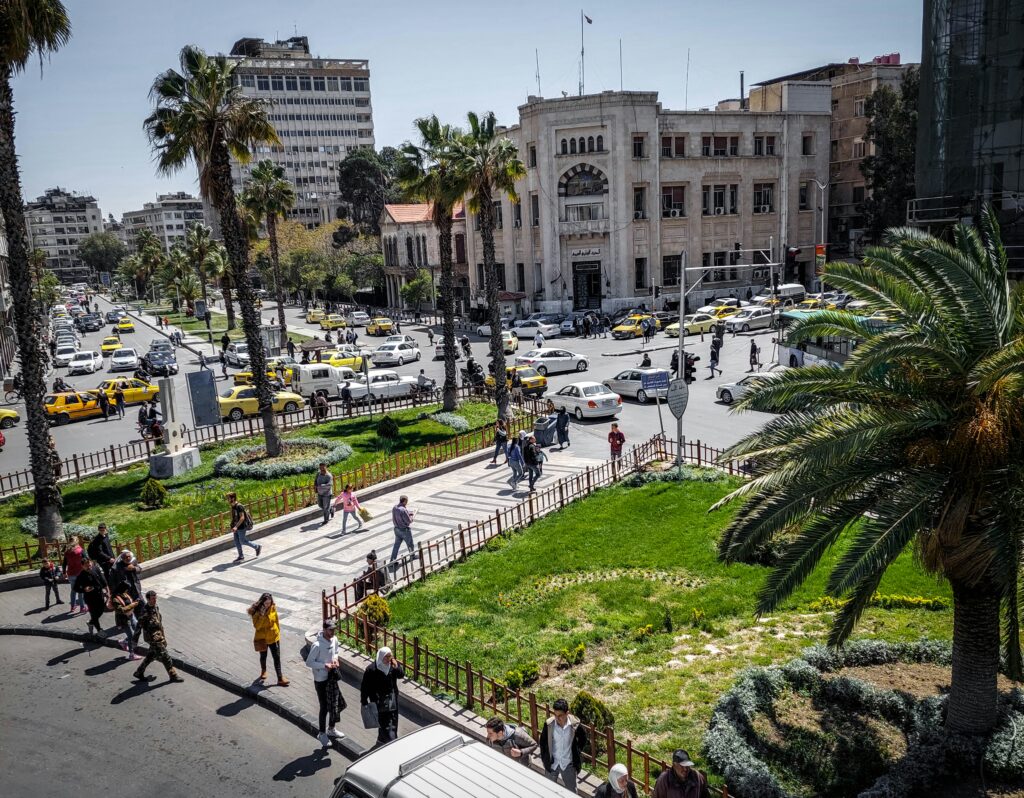US President Donald Trump has eased long-standing sanctions on Syria, marking a significant shift in US policy and opening the door for potential economic recovery in the war-torn nation. This move fulfills Trump’s earlier promise to dismantle parts of the complex sanctions regime that has been in place for years.
Trump’s administration issued broad exemptions that end certain parts of the Caesar Syria Civilian Protection Act’s enforcement. The US State Department suspended penalties against those doing business with Syrian banks and other key institutions for six months. This waiver applies to sanctions originally enacted by Congress in 2019, which had blocked many reconstruction efforts and kept foreign investors wary.
This latest decision comes as the first phase of a larger plan to gradually remove US sanctions on Syria, according to the White House. It signals a new chapter after years of strict economic measures that aimed to pressure the Syrian government over its actions during the civil war.
What the Sanctions Relief Means
The Caesar Act, passed in 2019, imposed sweeping sanctions on anyone who supports the Syrian government financially. It targeted banks, energy companies, and entities linked to President Bashar al-Assad’s regime. These sanctions severely limited Syria’s ability to rebuild after more than a decade of conflict, freezing much-needed funds and investment.
Trump’s recent exemptions mean that businesses can now engage with Syrian banks and institutions without fear of US penalties—at least for six months. This easing is intended to help restart economic activity and rebuild critical infrastructure in Syria, including housing, energy, and healthcare systems.
Trump framed this move as a “first step” toward dismantling the entire sanctions framework. His administration emphasized that the full lifting of sanctions would be handled carefully and in stages, to ensure stability and accountability in the region.
The Middle East Tour and Global Context
Trump announced the sanctions relief during his recent Middle East tour, where he met with regional leaders to discuss peace and economic progress. This announcement follows a similar approach by the European Union, which began suspending its sanctions on Syria starting in February. The EU described its method as phased and reversible, designed to support Syria’s post-war transition while maintaining pressure on human rights concerns.
Together, the US and EU moves indicate a broader shift in international strategy. After years of isolating the Assad government, Western powers are now looking for ways to encourage Syria’s recovery under an interim leadership, signaling a possible end to the isolation that has defined Syrian relations since the civil war began.
Syrian Government Welcomes the Change
The Syrian Foreign Ministry officially welcomed the US decision and offered cooperation with all partners who respect Syria’s national sovereignty. Officials in Damascus praised the announcement and called for an end to foreign interference in Syria’s internal affairs.
Local media in Damascus reported widespread relief and cautious optimism among residents. Many Syrians see the sanctions relief as a chance to improve daily life and rebuild their country after years of hardship.
Zeina Shahla, a Damascus resident interviewed by local journalists, said she cried when she read the news. “We’re finally seeing real steps toward the country’s recovery,” she shared. Another local, Nael Kaddah, explained that the easing of restrictions means money transfers can now happen more freely. “Before, companies took advantage of us with high fees and delays. Now we can receive funds from abroad without unfair costs,” he said.
These voices reflect a broader hope among Syrians that this policy shift could bring much-needed economic relief and renewed stability.
The Political Background: Assad’s Fall and Western Strategy
The easing of sanctions comes after the fall of Bashar al-Assad’s regime in December 2024. Western nations had linked sanctions to Assad’s alleged support for militias, use of chemical weapons, and repression of civilians throughout the civil war.
With Assad out of power, the US and EU now aim to empower Syria’s new interim government by loosening economic restrictions. Officials in Washington and Brussels stress that this approach is strategic, not just humanitarian. The goal is to encourage stability, reform, and peace in Syria while maintaining some leverage over human rights and governance issues.
What Remains and What’s Next
Although the US Treasury has stopped penalizing many financial activities linked to Syria’s government, some congressional restrictions remain in place. However, these can be temporarily waived by executive order, allowing for flexibility as the US tests this new policy direction.
Trump’s administration has made clear that this is just the beginning of a careful, step-by-step process toward full sanctions relief. They are watching closely to ensure that economic reopening does not strengthen bad actors or lead to renewed conflict.
Syrian officials have expressed readiness to engage with international partners under these new conditions, provided that foreign governments respect Syria’s sovereignty and avoid interference.
This easing of sanctions marks a hopeful turning point for Syria after more than a decade of war and isolation. For many Syrians, it opens the possibility of economic recovery and improved living conditions. For the international community, it presents a chance to support Syria’s post-war rebuilding while balancing concerns over governance and human rights.
The full impact of this policy change will take time to unfold, but the early signs suggest it could reshape Syria’s future and its relations with the West.


